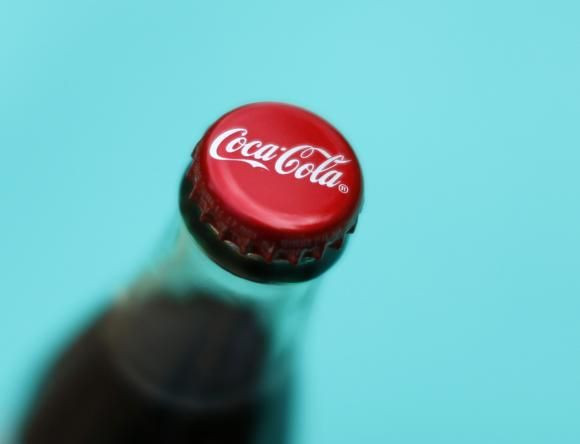Coca-Cola, Pepsi Pledge To Reduce Americans' Intake Of Sugary Drink Calories

Sweet-toothed Americans, take heed: Several of the world’s top beverage makers have pledged to substantially reduce the number of calories the average American consumes via sugary drinks over the next decade. The American Beverage Association, the Coca-Cola Co., Dr. Pepper Snapple Group and PepsiCo joined with the American Heart Association and Clinton Foundation on Tuesday to announce the landmark initiative.
The coalition pledged to reduce per-person calories consumed in beverage form by 20 percent nationally by 2025 in what its members tout as a major step toward combating obesity, diabetes and other health ills across the U.S. They plan to do so by marketing their smaller and healthier drinks more effectively and aggressively than in the past.
“This is the single-largest voluntary effort by an industry to help fight obesity and leverages our companies’ greatest strengths in marketing, innovation and distribution,” Susan K. Neely, president and CEO of the American Beverage Association, said. “This initiative will help transform the beverage landscape in America.”
Calories from beverages make up 6 percent of the daily caloric intake of Americans, and reducing the number of calories consumed via sugary drinks could have a real impact on the country’s obesity epidemic, according to Dr. Howell Wechsler, CEO of the Alliance for a Healthier Generation.
But not all health experts are so stoked about the sugar slashing move, which was announced at the Clinton Global Initiative in New York on Tuesday. Barry Popkin, a nutrition researcher at the University of North Carolina, told ABC News that the move represents little more than a way to pass off already falling sales of sugary beverages as a major public health win.
“It's a done deal anyway. It's mainly happened already and rest of the reduction will happen in the next few years no matter what they do,” he said.
Popkin points out that his research shows that the amount of calories consumed via sugary beverages has already shrunk by 15 calories per day each year since 2003, and suggests that the new initiative simply banks on that trend continuing. He also suggested that the companies might use creative accounting methods if they wanted to reach the goal while doing very little of the national marketing and local community outreach they vowed Tuesday to pursue.
"They never said this was a new commitment or that they're taking an extra 20 percent on top of what they've done," Popkin told ABC. "If they push their start date back to, say, 2008, they can easily show they've reached these goals."
Still, many advocates believe the development shows that companies are getting serious about helping to improve public health in America, or at least reducing their harm.
"[T]he industry is seeing the writing on the wall," Michael Jacobson, executive director of the Center for Science in the Public Interest, said, according to the Associated Press.
© Copyright IBTimes 2024. All rights reserved.



















